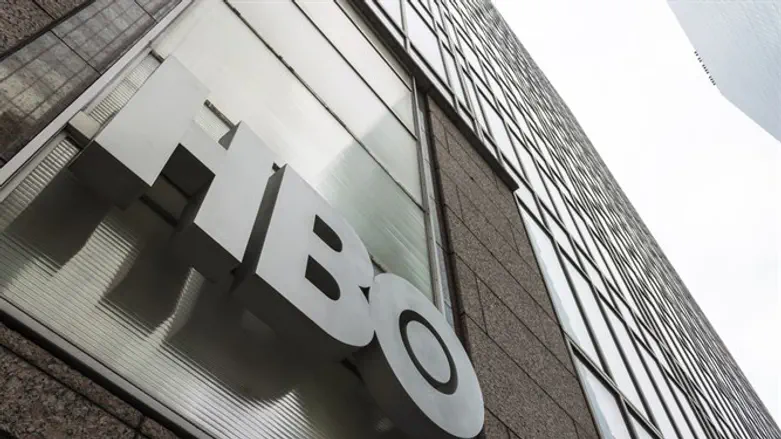
“I’ve been kidnapped,” a voice can be heard saying in Hebrew in the opening of a new HBO series about the lead-up to the 2014 Gaza War.
It’s Gilad Shaer, a 16-year-old Israeli who, along with two other Israeli teens, was kidnapped by Arab terrorists as they were hitchhiking home in Judea, south of Jerusalem. Somehow he has managed to call the police.
The emergency dispatcher tries to get more information, but Shaer is silent.
“Head down,” a voice can be heard yelling repeatedly in Hebrew.
The opening and the series’ name — “Our Boys” — suggests that it will focus on the kidnapping that rocked Israel five summers ago.
Shaer, along with Naftali Fraenkel, 16, and Eyal Yifrah, 19, were missing for more than two agonizing weeks, during which Israeli security forces conducted an aggressive and highly publicized search. Their bodies were found 2 1/2 weeks later and Israel blamed Hamas.
On July 8, following escalating tensions with the Gaza-based terrorist group, Israel launched a ground operation in Gaza known as Protective Edge.
But the series, which premiered on Aug. 12, does not spend much time on the kidnapping and its immediate aftermath.
Instead it uses the incident as the backdrop to the tragedy that followed: the revenge kidnapping and murder of a 16-year-old Arab from eastern Jerusalem, Mohammed Abu Khdeir. Autopsy results suggested that he had been burned alive. In 2016, a Jewish-Israeli man, Yosef Ben-David, was convicted for the murder along with two minors.
The decision to focus on the murder of an Arab teen has drawn criticism in Israel, despite what the creative team said was a conscious choice.
“We were drawn to understanding the perpetrators of this murder more than we were interested in understanding the victimhood of our side,” Hagai Levi, one of the filmmakers, told Drama Quarterly.
The series is “a story of pain turning into revenge,” he added.
Some 120 Israeli families who lost members in terror attacks disagree. They wrote a letter to HBO criticizing the show’s viewpoint, saying it equates two events that differ in significant ways.
“Khdeir’s murder was met with shock and condemnation by the vast majority of the Israeli public,” the parents wrote, according to Israel Hayom. “Dozens of Jews are murdered as a result of the ongoing incitement by the Palestinian Authority every year. The Arab street does not condemn the murder of Jews and even supports and encourages it.”
The Palestinian Authority has a policy of paying stipends to the families of terrorists either in prison or killed in the attacks — a policy that Israel has dubbed “pay to slay.” Its leader, Mahmoud Abbas, rarely speaks out against attacks against Israelis, though he did condemn the kidnapping of the teens.
“Our Boys” was created by two Jewish Israelis, Levi and Joseph Cedar, and one Arab-Israeli filmmaker, Tawfik Abu Wael. Cedar, a two-time Academy Award nominee for best foreign film, and Abu Wael directed the series.
The show gives viewers a look inside the lives of the main actors in Abu Khdeir’s murder — from Mohammed’s grieving family, to the Israel Security Agency members investigating the crime, to the Jewish man behind the murder and the world he inhabits.
Interspersed with the scripted action are real clips from the summer — Prime Minister Binyamin Netanyahu speaking at the teens’ funerals and news anchors discussing new developments.
A disclaimer says that “some of the events, characters and dialogue have been fictionalized for dramatic purposes.” Watching the series, it’s hard to tell what is real.
“The idea was to create a unifying world where you don’t reveal what is documentary and what isn’t,” Levi told Drama Quarterly.
One of the main characters, an Israeli investigator named Simon with a backstory of his own, is entirely made up. Others are based on real people, although which parts are embellished is often unclear to the viewers.